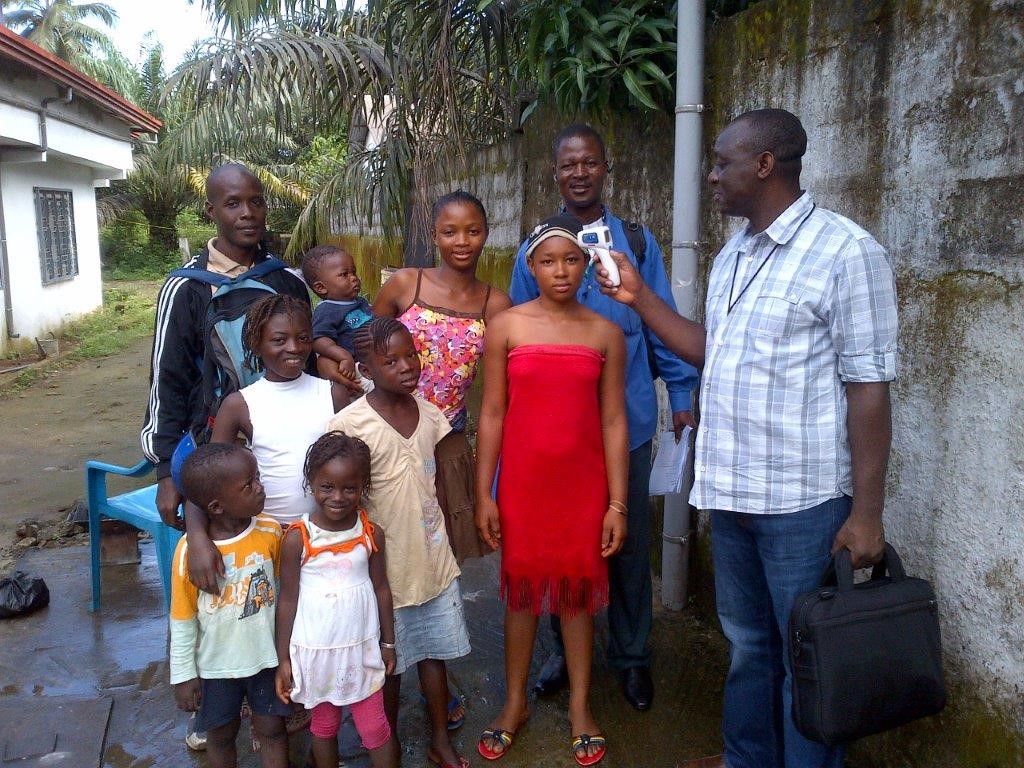DRC: Bridging the Gap During the Ebola Epidemic
During the Ebola epidemic, disease detectives from the Democratic Republic of Congo brought contact-tracing expertise to Guinea to help find and stop the disease.
By August 2014, Guinea’s daily count of new Ebola cases was rising steadily, with more than 450 cases reported in July. In the Democratic Republic of Congo (DRC), experts knew they could help.

The Democratic Republic of Congo (DRC) sent FETP residents and graduates to perform contact tracing in Guinea during the Ebola outbreak.
The DRC has its own history with Ebola, having faced one short-lived outbreak in 1976 and another in the mid-90s. When Ebola briefly returned again in the summer of 2014, the country was better prepared. A trained team of field epidemiologists helped swiftly put a stop to the outbreak, limiting it to 66 cases.
By the time the West African outbreak began, the DRC had a five-year history of training disease detectives through its Field Epidemiology Training Program (FETP). FETPs are modeled on CDC’s successful Epidemic Intelligence Service program, but are owned by individual countries and ministries of health. FETP residents and graduates serve as “boots on the ground” in the ongoing battle against infectious diseases.
The DRC graduated its first cohort of FETP officers in 2010. When Ebola came to Guinea, three of these highly trained disease detectives quickly deployed to the area. Within hours of arriving, the team began searching for everyone who had direct contact with sick Ebola patients. Finding and monitoring all contacts proved critical to stopping the West Africa epidemic.
Over the course of the epidemic, more than 30 DRC field epidemiologists would eventually serve as contact tracers in Guinea. “Our FETP officers from DRC were very keen to deploy to Guinea. They had seen firsthand how the FETP training works in their own country,” said John Ngulefac, PhD, a CDC public health advisor who worked with the DRC team in Guinea.
One of the DRC officers commented on the “life-changing” experience. “Before, I thought my job was to help individual patients. Now I know I can help the entire community.”
The DRC team also authored a comprehensive contact tracing process. “For us,” said Ngulefac, “it was key to leave the Ministry of Health in Guinea with a solid contact tracing program that they could implement on their own in the future.”
About This Story
This story illustrates the DRC’s commitment to meeting the Global Health Security Agenda’s Workforce Development target, including at least one trained field epidemiologist per 200,000 people worldwide. CDC estimates that an additional 29,000 field epidemiologists are needed to fulfill this goal.
Since taking root in Thailand in 1980, CDC’s Field Epidemiology Training Program has expanded to reach more than 70 countries throughout the world, including the DRC. FETP residents and graduates continue to develop in-country expertise so that outbreaks can be detected locally and prevented from spreading.